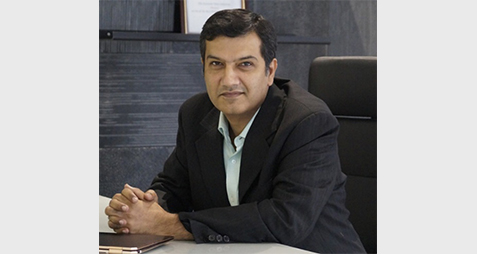Interview with Subir Batra: Navigating the Journey from Consulting to Healthcare

Subir Batra is a gold medalist from BITS Pilani (Pilani, ‘92) and an IIM Bangalore alumnus. CEO at Quorit Wound Care, Mr. Batra, has extensive global experience and has held senior management roles in services and consulting firms. He has been a strategy consultant to large multinational organizations in India and the US.
What is the day-to-day experience like in consulting, especially in the initial stages of your career, and how does it differ from other industries?
Consulting offers unparalleled exposure to diverse industries and senior professionals. Unlike starting in a specific job within a particular sector, consulting allows for exposure across various industries and working closely with seasoned experts. This exposure can range from semiconductors to pharmaceuticals to financial services, essentially providing a broad canvas to shape your career trajectory. Moreover, consulting facilitates interaction with high-level executives, which may not be as accessible in other entry-level roles within specific companies, which fosters valuable networking connections.
How did your educational background, particularly your Computer Science degree, influence your career trajectory?
My Computer Science degree instilled a passion for building from scratch and developing innovative solutions. Whether creating new frameworks for consulting projects or venturing into healthcare technology startups, the foundational skills and problem-solving mindset I gained from my education significantly shaped my career path.
What were some defining moments in your journey as a consultant?
One memory that comes to my mind is the opportunity to present a solution to top-level executives early in my career. Despite being relatively new to the field, having the chance to propose strategies directly to CEOs and seeing our recommendations taken seriously and implemented in the real world left a lasting impression on me.
In your experience, what are the essential qualities of a successful consultant, particularly when understanding the details of a client's industry?
A successful consultant needs a balance of deep industry knowledge and the ability to build relationships. One must know what they are talking about. And to know what they are talking about, they need to have the ability to get into details.
Reflecting on missed opportunities, are there any decisions you regret or opportunities you wish you had pursued differently?
There were certainly opportunities that we had to let go of, such as starting a telemedicine startup that was ahead of its time. Hindsight can offer valuable lessons, but predicting how alternative decisions would have played out is impossible.
With the rise of AI, how do you see the future of healthcare, particularly in wound care and surgeries?
AI is indeed set to disrupt the healthcare industry, though it's traditionally slow in adopting new technologies due to the inherent risks of dealing with human lives. AI has many use cases, from predicting diseases like cancer or heart attacks to suggesting possible diagnoses based on patient data. While AI will be a significant value-add, I don’t see it replacing doctors or nurses. Instead, it will serve as a tool to enhance their capabilities. For instance, our company is developing an app that uses AI to assess wounds through photographs, helping to predict the cause and suggest treatments. It's still early days, but this is the direction we're heading.
You Might Also Like
- BITS to Baker Hughes: Shad Hussain’s Journey Through Turbulent Times
- Be Cool: Navigating Life, Literature, and Mental Health with Shashi Warrier
- Coaching Across Cultures: Brajesh Bajpai’s Journey of Learning, Leading, and Adapting
- From Engineer to AI Leader: An Interview with Akhil Singhal on Startups, Strategy, and the Future of Gen A
- From Circuits to Capital Markets: Deepak Joshi’s Global Finance Journey














